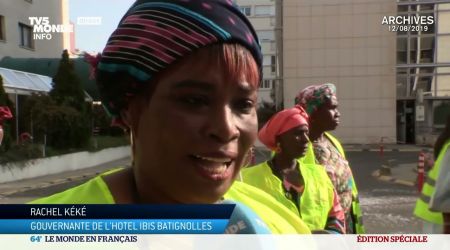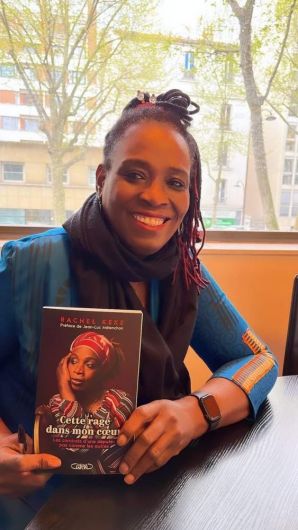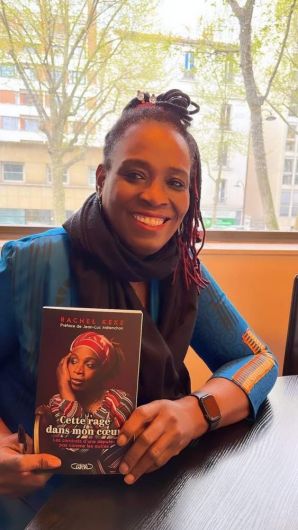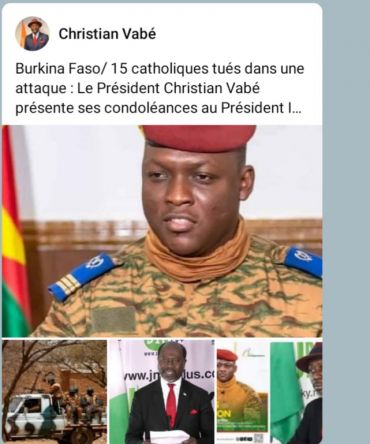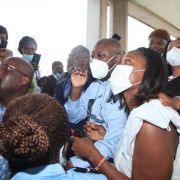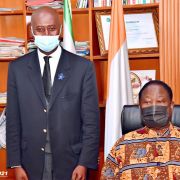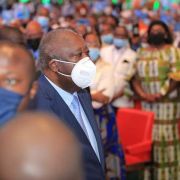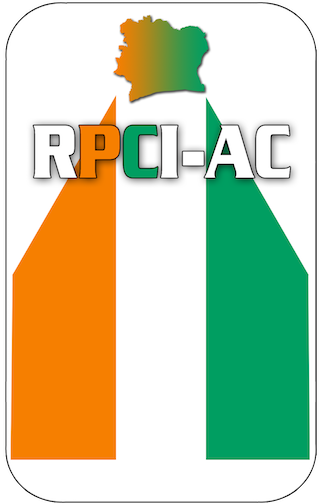Ghana: Comment le ministre Katinan a été arrêté ? Le film d’une extradition manquée. Ce que dit la constitution ghanéenne ?
Le 27 août 2012 par IVOIREBUSINESS - Le ministre Koné Katinan Justin, porte-parole du Président Laurent Gbagbo, arrêté VENDREDI à l’aéroport d’Accra-Kotoka, n’est pas encore libre de ses mouvements. Le feuilleton
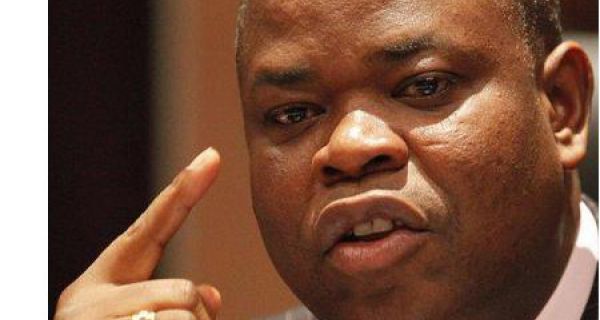
Le 27 août 2012 par IVOIREBUSINESS - Le ministre Koné Katinan Justin, porte-parole du Président Laurent Gbagbo, arrêté VENDREDI à l’aéroport d’Accra-Kotoka, n’est pas encore libre de ses mouvements. Le feuilleton
de son arrestation est digne des polars américains, car il implique le régime Ouattara, Interpol Ghana, le gouvernement ghanéen, et des méthodes barbouzes.
En atterrissant vendredi vers 18h (locales) à l’international Kotoka-Airport d’Accra, en provenance de Johannesbourg, le ministre Koné Katinan était loin de se douter qu’il manquerait in-extremis à un enlèvement suivi d’une extradition sur Abidjan, sans l’accord des autorités ghanéennes.
Seul Interpol-Ghana et certains policiers ghanéens de la police de l’air et des frontières de l’aéroport d’Accra-Kotoka ont été mis dans la confidence. L’opération a été menée dans le plus grand secret par la présidence ivoirienne, qui selon nos sources, a mis de gros moyens pour que l’enlèvement et le rapatriement de Koné Katinan, aboutissent.
On parle de plusieurs centaines de millions de Fcfa qui ont été déboursés pour s’acheter la coopération Interpol-Ghana et de certains policiers ghanéens.
Dès sa descente d’avion, en compagnie de son avocate, Me Lucie Bourthoumieux, et après avoir franchi le contrôle douanier, Koné Katinan est immédiatement pris en charge par Interpol, alors qu’il s’apprêtait à s’engouffrer dans sa voiture.
Il doit l’échec de son extradition à la vigilance de son avocate Me Lucie Bourthoumieux, qui met aussitôt en branle son réseau et le gouvernement ghanéen. Lequel n’est bizarrement pas informé de l’opération d’extradition du ministre Katinan, qui bénéficie de l’asile politique au Ghana, et qui n’est donc pas extradable.
Aussitôt, la DST ghanéenne rentre en scène et emmène le ministre dans leur siège sécurisé d’Accra.
Pendant ce temps, le pouvoir d’Abidjan, qui a déjà affrété un avion sur Accra pour récupérer le colis « Katinan », fait feu de tout bois et brandit un mandat d’arrêt international contre le ministre pour crimes économiques et pour implication dans les récentes attaques qui secouent actuellement le régime.
Une magistrate est d’ailleurs du voyage avec un dossier en béton contre le ministre.
La DST consent alors à interroger le ministre Katinan sur les implications présumées dans les récentes attaques d’Akouedo, de Yopougon, de Dabou, et de Toulepleu, par un commando armé non identifié.
Ce dernier dément catégoriquement être impliqué dans ces différentes attaques.
Le pouvoir ghanéen oppose alors une fin de non-recevoir au régime ivoirien. L’avion présidentiel ivoirien repart brédouille à Abidjan, sans le « colis ».
Le Président de la République John Dramani, actuellement en voyage à l’étranger est saisi par ses services de sécurité et dit-on par l’ex-Président Jerry John Rawlings, dont il fût le protégé et ministre du commerce.
Rawlings montre un intérêt particulier devant l’affaire Katinan et le fait savoir au Président Dramani.
Pour éviter tout coup fumant, ordre est alors donné à la DST de transférer le « colis » Katinan à la présidence de la République, sous protection particulière des services spéciaux présidentiels.
Le Président Dramani, à son retour de voyage, tranchera la question Katinan. Mais selon nos sources, le ministre pourrait recouvrer la liberté, cela en vertu de son statut de réfugié politique, et en vertu de la Constitution ghanéenne qui garantie le droit d’asile.
En effet, tout exilé politique en territoire ghanéen ne saurait être extradé dans son pays d’origine. Seule condition : Si ce dernier s’est rendu coupable de déstabilisation de son pays à partir du territoire ghanéen. Ce qui n’est pas le cas du ministre Katinan, vérification faite comme on l’a dit par la DST ghanéenne.
D’ores et déjà, des têtes devraient tomber au sein d’Interpol-Ghana et de la police ghanéenne.
Selon nos sources, le Président John Dramani, objet d’une cours assidue par Alassane Dramane Ouattara, n’a pas gouté l’attitude de son homologue ivoirien, au moment où il prépare une échéance électorale capitale, sur fond de rivalités avec le clan Rawlings.
En effet, l’épouse du Président Rawlings est candidate déclarée à l’élection présidentielle de décembre, face justement au Président John Dramani.
Nous vous livrons en annexe, le communiqué du gouvernement ghanéen concernant l’arrestation de Koné Katinan, et la constitution de la République du Ghana qui protège le droit d’asile.
Christian Vabé
COMMUNIQUE OFFICIEL DU GOUVERNEMENT GHANEEN SUR L’ARRESTATION DE KONE KATINAN
Le Gouvernement de la République du Ghana a confirmé que M. Koné Katinan Justin, ancien ministre ivoirien chargé du Budget et porte-parole de l'ancien président ivoirien Laurent Gbagbo a été arrêté par la sécurité du Ghana et est maintenu en garde à vue ici au Ghana. Un communiqué publié à Accra et signé par le sous-ministre de l'Information M. Samuel Ablakwa Okudzeto affirme que l'arrestation a été effectuée le Vendredi 24 Août 2012, alors que M. Koné, qui détient une carte de réfugié de la Commission des réfugiés du Ghana qui est également reconnue par le HCR, revenait au Ghana après un voyage en Afrique du Sud. La déclaration signée par Samuel Okudzeto Ablakwa, vice-ministre de l'Information a ajouté que le mandat d'arrêt de M. Katinan Justin a été signé le 16 août 2012 par les autorités ivoiriennes. Le président John Mahama Dramani, conformément à la Constitution ghanéenne, a depuis demandé au procureur général et au ministre de la Justice d'étudier les instruments d'extradition et de le conseiller en conséquence.
Source Ghanaweb (traduit par Benjamin Silué)
THE CONSTITUTION
OF THE REPUBLIC OF GHANA, 1992
Dispositions relatives à l’extradition et au non refoulement
Article 14.
(1) Every person shall be entitled to his personal liberty and no person
shall be deprived of his personal liberty except in the following cases and
in accordance with procedure permitted by law :
(a) in execution of a sentence or order of a court in respect of a
criminal offence of which he has been convicted; or
(b) in execution of an order of a court punishing him for contempt
of court; or
(c) for the purpose of bringing him before a court in execution of
an order of a court; or
(d) in the case of a person suffering from an infectious or
contagious disease, a person of unsound mind, a person addicted to
drugs or alcohol or a vagrant, for the purpose of his care or
treatment or the protection of the community; or
(e) for the purpose of the education or welfare of a person who has
not attained the age of eighteen years; or
(f) for the purpose of preventing the unlawful entry of that person
into Ghana, or of effecting the expulsion, extradition or other
lawful removal of that person from Ghana or for the purpose of
restricting that person while he is being lawfully conveyed through
Ghana in the course of his extradition or removal from one country
to another; or
(g) upon reasonable suspicion of his having committed or being
about to commit a criminal offence under the laws of Ghana.
(2) A person who is arrested, restricted or detained shall be informed
immediately, in a language that he understands, of the reasons for his
arrest, restriction or detention and of his right to a lawyer of his choice.
(3) A person who is arrested, restricted or detained -
(a) for the purpose of bringing him before a court in execution of
an order of a court; or
(b) upon reasonable suspicion of his having committed or being
about to commit a criminal offence under the laws of Ghana, and
who is not released, shall be brought before a court within fortyeight
hours after the arrest, restriction or detention.
(4) Where a person arrested, restricted or detained under paragraph (a) or
(b) of clause (3) of this article is not tried within a reasonable time, then,
without prejudice to any further proceedings that may be brought against
him, he shall be released wither unconditionally or upon reasonable
conditions, including in particular, conditions reasonably necessary to
ensure that he appears at a later date for trial or for proceedings
preliminary to trial.
(5) A person who is unlawfully arrested, restricted or detained by any
other person shall be entitled to compensation from that other person.
(6) Where a person is convicted and sentenced to a term of imprisonment
for an offence, any period he has spent in lawful custody in respect of that
offence before the completion of his trial shall be taken into account in
imposing the term of imprisonment.
(7) Where a person who has served the whole or a part of his sentence is
acquitted on a appeal by a court, other than the Supreme Court, the court
may certify tot he Supreme Court that the person acquitted be paid
compensation; and the Supreme Court may, upon examination of all the
facts and the certificate of the court concerned, award such compensation
as it may think fit; or, where the acquittal is by the Supreme Court, it may
order compensation to be paid to the person acquitted.
Article 21.
(1) All persons shall have the right to :
(a) freedom of speech and expression, which shall include freedom
of the press and other media;
(b) freedom of thought, conscience and belief, which shall include
academic freedom;
(c) freedom to practice any religion and to manifest such practice;
(d) freedom of assembly including freedom to take part in
processions and demonstrations;
(e) freedom of association, which shall include freedom to form or
join trade unions or other associations, national or international, for
the protection of their interest;
(f) information, subject to such qualifications and laws as are
necessary in a democratic society;
(g) freedom of movement which means the right to move freely in
Ghana, the right to leave and to enter Ghana and immunity from
expulsion from Ghana.
(2) A restriction on a person's freedom of movement by his lawful
detention shall not be held to be inconsistent with or in contravention of
this article.
(3) All citizens shall have the right and freedom to form or join political
parties and to participate in political activities subject to such
qualifications and laws as are necessary in a free and democratic society
and are consistent with this Constitution.
(4) Nothing in, or done under the authority of, a law shall be held to be
inconsistent with, or in contravention of, this article to the extent that the
law in question makes provision :
(a) for the imposition of restrictions by order of a court, that are
required in the interest of defence, public safety or public order, on
the movement or residence within Ghana of any person; or
(b) for the imposition of restrictions, by order of a court, on the
movement or residence within Ghana of any person either as a
result of his having been found guilty of a criminal offence under
the laws of Ghana or for the purposes of ensuring that he appears
before a court at a later date for trial for a criminal offence or for
proceedings relating to his extradition or lawful removal from
Ghana; or
(c) for the imposition of restrictions that are reasonably required in
the interest of defence, public safety, pubic health or the running of
essential services, on the movement or residence within Ghana of
any person or persons generally, or any class of persons; or
(d) for the imposition of restrictions on the freedom of entry into
Ghana, or of movement in Ghana, if a person who is not a citizen
of Ghana; or
(e) that is reasonably required for the purpose of safeguarding the
people of Ghana against the teaching or encourages disrespect for
the nationhood of Ghana, the national symbols and emblems, or
incites hatred against other members of the community except so
far as that provision or , as the case may be, the thing done under
the authority of that law is shown not to be reasonably justifiable in
terms of the spirit of this Constitution.
(5) Whenever a person, whose freedom of movement has been restricted
by the order of a court under paragraph (a) of clause (4) of this article,
requests at any time during the period of that restriction not earlier than
seven days after the order was made, or three months after he last made
such request, as the case may be, his case shall be reviewed by that court.
(6) On a review by a court under clause (5) of this article, the court may,
subject to the right of appeal from its decision, make such order for the
continuation or termination of the restriction as it considers necessary or
expedient.

